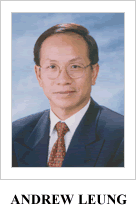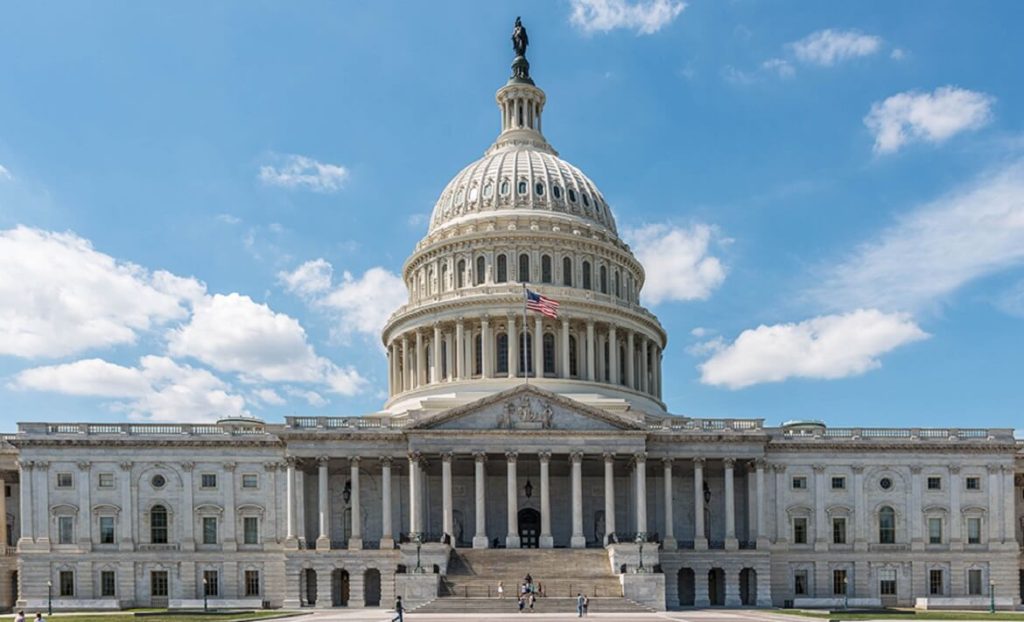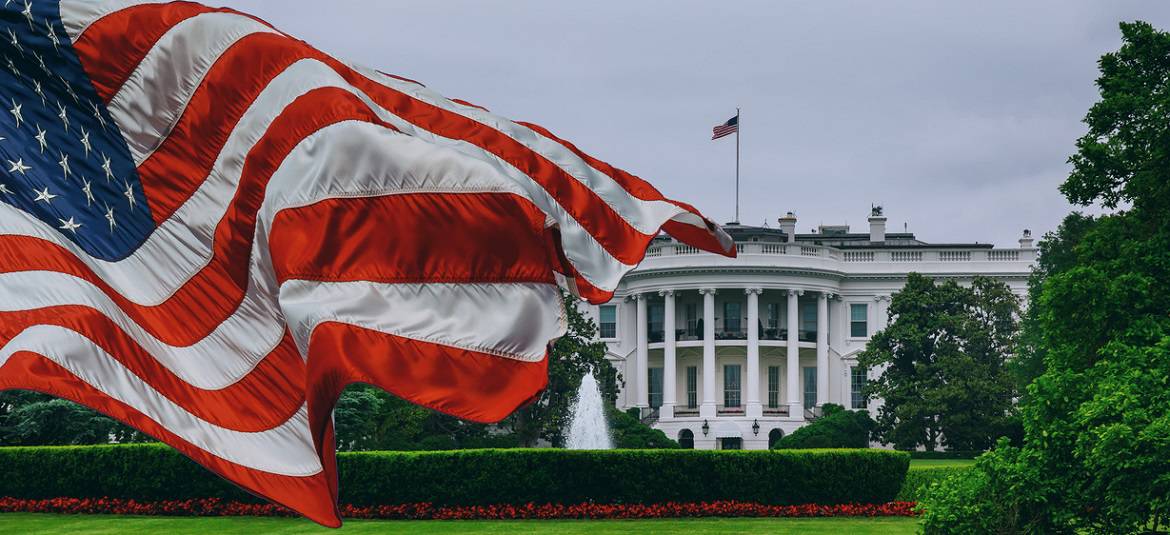By Andrew KP Leung (International and Independent China Strategist. Chairman and CEO, Andrew Leung International Consultants and Investments Limited).
 After the Second World War, America has ruled the world not as a mere global policeman. It succeeded by being a “shining city upon a hill’’, by setting an example of a powerful state united in democracy, its open and free economy, a rising tide lifting up all boats, the mighty dollar paying for the “common good” of the global village.
After the Second World War, America has ruled the world not as a mere global policeman. It succeeded by being a “shining city upon a hill’’, by setting an example of a powerful state united in democracy, its open and free economy, a rising tide lifting up all boats, the mighty dollar paying for the “common good” of the global village.
America’s military, while eclipsed in relative terms, still remains miles ahead of any competitor, China included, not to mention unrivalled advantages in geography, natural resources, scientific lead, and cultural popularity.
However, America’s military power has been far too often used to topple governments and regimes not to its liking. Its hegemonic decline is not “perceived” but real.
America’s domestic governance is in shambles. It is influenced by powerful oligarchs, not least the so-called “military-industrial complex”. It is torn by divergent values and beliefs and perennial dog-fights between two political parties, The whole nation is regularly held to political ransom. The recent prolonged gridlock in selecting the House Speaker is a case in point.
Externally, more and more countries are piqued by double standards and hypocrisy, catering to America’s own interests at the expense of other nations’, allies included.
Heralded by the “Triffin Dilemma”, the dollar is increasingly being weaponized to press home America’s unilateral strategic goals. Its “exorbitant privilege” of printing money is used to finance unbridled profligacy and “forever wars”, ditching other nations’ economic, financial and security concerns.
Topping it all is the reality that America no longer makes the things most peoples want and can afford, a role China has embraced with a vengeance. Neither is America any longer the largest customer of Middle East oil. The heyday of American “petrodollar” is over.
Emerging economies, China included. are slated to account for 60% of the global economy by 2035, using purchasing power parity measurements, according to New York-based Conference Board, a global think tank . Most of them, including African nations, are tilting towards China, at least in substance if not in name. This is not because they want to embrace China’s political ideology but because China has become the world’s largest trader and manufacturer at the heart of the global supply and value chain. China also helps build much-needed developmental infrastructure such as schools, hospitals, highways, rail, ports, power grids and telecommunication networks without political pre-conditions.
The simplistic rhetoric about an existential fight between “democracy” and “autocracy” leaves a lot of developmental questions unanswered.
Ukraine war and Russia
Intoxicated with a “holy crusade” to protect Ukraine, many do not seem to think long and hard how big a landmass Russia is, what natural and other resources Russia has at its command, whether Russia would contemplate surrender in a proxy war of prolonged attrition, and whether forced regime change in Russia would result in Europe jumping from the frying pan into the fire.
As in the case of America’s wars on Iraq and Afghanistan, hype and hubris are no guarantee for productive outcomes. A Republican-controlled House is already sending signals to curtail, if not terminate, American taxpayers’ blank cheque for Ukrainian President Zelensky.
While most European nations are pivoting away from Russian gas, the transition is unlikely to be smooth. With a bitter European winter, it is too early to write Putin’s obituary.
Meanwhile, the Ukraine proxy war is costing the world dearly in terms of energy and agricultural supply chain disruptions, not to mention rampant inflationary pressures.
China has been careful not to directly associate with Russia’s Ukrainian venture, not least because territorial integrity as defined by the United Nations Charter remains a key tenant of China’s national and foreign policy. But American aggression making both countries arch enemies has succeeded in pushing Russia much closer to China in a “partnership without limits”.
With no Cold War bloc, the two vast nations are cemented by near-perfect economic symmetry: Russia as a gigantic energy supplier and agricultural producer with a 4,000 km Chinese border while China remains the world’s largest customer for these commodities. Medvedev’s recent Beijing visit helped seal an agreement to designate 6.96 million sq. kilometres in Russia’s Far East for joint development, turning it into the world’s largest “special economic zone” for Chinese investors , forming part of China’s “Arctic Silk Road”.
In his famous book The Grand Chessboard (1997), the late American geostrategic doyen Zbigniew Brzezinsky warned against the greatest danger to American supremacy posed by an “anti-hegemonic coalition” of China, Russia and Iran. Willy-nilly, this feared danger is now happening, thanks to American foolhardiness.
Taiwan
Beijing has been consistent in repeatedly declaring its preference for peaceful unification, part and parcel of the China Dream. It is well aware of America’s shenanigans of paying lip service to the One China Policy, hollowing out the concept by fielding more and more senior leaders to visit the island, creating more and more diplomatic space for Taiwan as if it were a separate country, and turning the island into a military “porcupine”.
President Xi Jinping has been upfront about 2049 as the absolute deadline for peaceful unification, without renouncing the use of force when push comes to shove. Indeed, Beijing has long prepared for all eventualities, including a 2005 Anti-Secession Law and targeted deployment of land, naval and air forces (including aircraft-killer-missiles) in addition to militarised island-building in the South China Sea. The all-theatre island-blockade military exercise conducted immediately following Nancy Pelosi’s ill-advised Taiwan visit was clearly an operation well-rehearsed beforehand.
The vast majority of Taiwanese people do not want unification. Neither are most fans for independence, preferring the status quo. Over a million Taiwanese and their families have been living and working on the Mainland. For most Taiwanese, peaceful unification on more generous terms than for Hong Kong doesn’t necessarily sound like the end of the world. The example of Hong Kong’s eventual peaceful unification is instructive, bearing in mind former Iron Lady Margaret Thatcher’s initial reluctance to give up the former British colony.
Great Power co-existence
Rival Great Powers don’t cooperate as each seeks to dominate the other, if only in the interests of its own security, according to The Tragedy of Great Power Politics by John Meisheimer, the father of “Offensive Realism” (2001).
Building on Richard N. Haass and Charles A. Kupchan’s ground-breaking insight in Foreign Policy, my Op-ed on World Geostrategic Insights dated 20 April 2021 explained how a “New Concert of Powers” between the United States, China, Russia and the European Union, supported by other nations and international institutions in the periphery, may well work in the 21st century.
The concept accepts the reality of continuing Great Power rivalry between diametrically-opposed national interests and ideologies. However, it envisages the need for an agreed framework of regular consultations to recognise each other’s absolute redlines and guardrails to avert Armageddon. Following the 1815 Congress of Vienna, the “Concert of Europe” among rival great powers managed to secure a century of relative peace and stability in Europe until the 1914 First World War.
At the moment, there is perhaps too much pride and prejudice on all sides for this to happen anytime soon. Nevertheless, as tensions mount, unintended consequences may well spiral out of control.
The current mild overtures by both the United States and China to reopen dialogue is a good sign. Other great powers may well contemplate similar moves, if only to avert catastrophe. Perhaps the “New Concert of Powers” model may offer some food for thought in a search for a more stable and fruitful path forward, not only for rival Great Powers themselves but for the entire world.
The author is an independent international strategist of China; he previously served as director general of social welfare and Hong Kong’s official representative for the United Kingdom, Eastern Europe, Russia, Norway, and Switzerland.
READ ALSO
U.S. Interests amid Global Geopolitical Challenges and Upheaval: an interview with Sharyl Cross |








